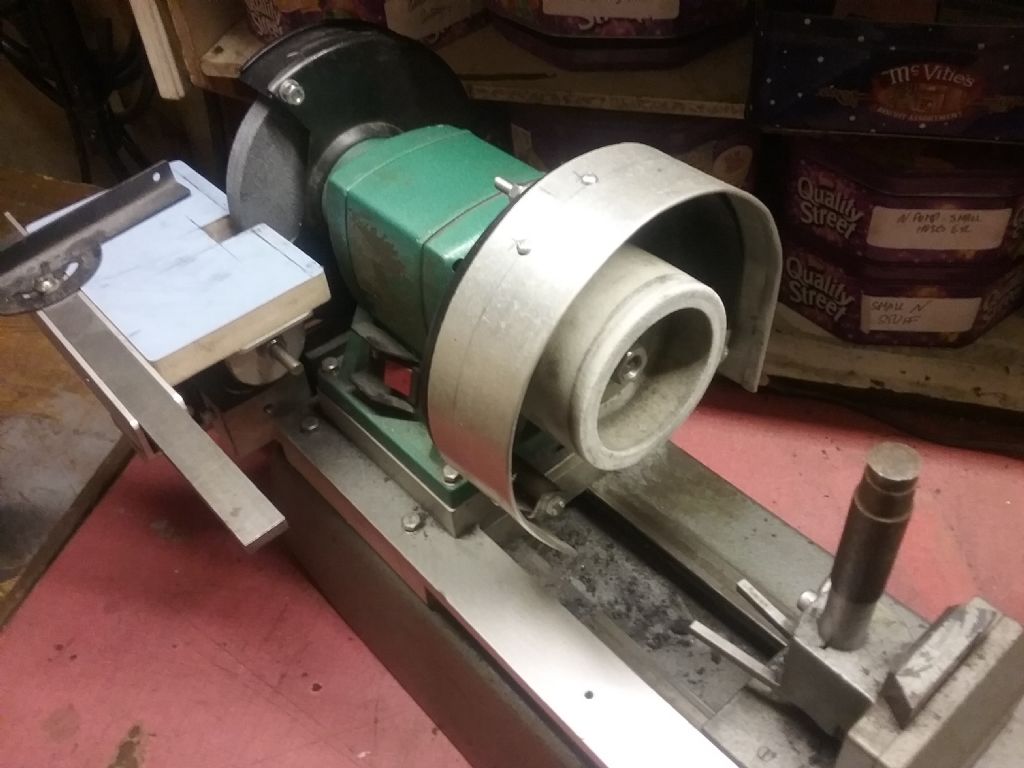Well, here's my take on this:
Q1 – Yes
Q2 – hold the wheel with your hand at the periphery. You can now do up the nut. Don't tighten it more than your hand resisting the force at the periphery of the wheel can resist, the nut mustn't be over tightened. The blotters will compress and stop the nut loosening in service, provide the wheel runs without vibration. It jolly well must, so the first action after mounting the wheel is to dress it true.
Actually, my thought is that Q1 is a lot deeper than this. The Abrasive Wheel Regulations say that an abrasive wheel cannot be run without an adequate guard under any circumstances, so one would argue that no guard can't be adequate. In reality we need to do a risk assessment and ask what guard is adequate for the foreseeable risks of running a diamond wheel. The same goes for CBN.
There are two obvious hazards, neither of which is that of the wheel bursting spontaneously or because of an undetected fault in its structure as is the most dangerous risk of a traditional stone wheel (dangerous as in worst consequences and entirely possible, therefore highest risk).. With a diamond wheel you've still got the hazard of a catastrophic dig in, and the shrapnel that could ensue. The second hazard with a diamond or CBN wheel is that of the hot metal particles cut off the work piece being expelled away from the wheel. The action of the guard should be to control where they go. Amongst other things you definitely don't want to see them reappear at the top of the wheel and be thrown off directly into your line of sight.
So my simplistic risk assessment seems to confirm that a guard is necessary. What is adequate? – well why not fit the guard that the manufacturer has provided and for which the CE certification is valid (!) There would be no defence under a prosecution for negligence (or worse) to say that the guard wasn't fitted because we thought we knew better than the manufacturer.
In a home work shop environment you take a chance with your own life if you want to. But invite the neighbours in and damage someone else, and the ensuing court case when your home insurance refuses to pay out against a claim for third party liability is going to make for some sleepless nights and serious aggro.
I was once in the same room as a grinding disc which exploded off the shaft of an air powered angle grinder. I'm very pleased to report that the bits went the opposite way to the three of us watching. It exploded because the chap who mounted it fitted a disc with an oversized centre hole, carefully doing up the centre nut so the disc was concentric but it wasn't adequately located. Predictably enough, as he pulled the trigger the wheel slipped, went eccentric and burst. My friend and I had already taken cover. The gent holding the tool got away scot free – but only because the grinder guard was in place.
Old Elan.





